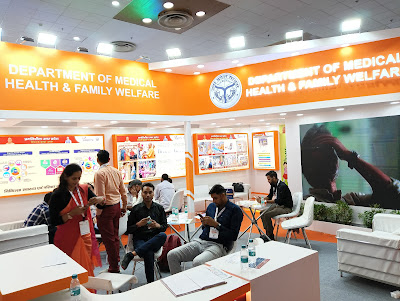शीर्षक:
एक ट्रूलव रिलेशनशिप के 10 स्तंभ — बनाएंगे आपके रिश्ते को अटूट @kotarjpawan
एक सच्चा, गहरा और अटूट रिश्ता किसी चमत्कार से कम नहीं लगता, लेकिन हकीकत में यह चमत्कार दो लोगों की समझ, प्यार, और आपसी सहयोग से बनता है।
Love is always Fake temporary affection toward meterial things Beauty,eye,breast,Height,voice,others but truelove is always Rare and permanent
ट्रूलव किसी एक भावना का नाम नहीं, बल्कि कई भावनाओं और आदतों का सुंदर संयोजन है। अगर आप अपने रिश्ते को और मजबूत, स्थिर और खुशहाल बनाना चाहते हैं, तो ये 10 स्तंभ आपके मार्गदर्शक बन सकते हैं।
1. भरोसा – रिश्ते की नींव
हर मजबूत रिश्ता भरोसे पर खड़ा होता है। जब आप अपने पार्टनर के शब्दों, कार्यों और इरादों पर विश्वास रखते हैं, तब रिश्ते में सुरक्षा और शांति बनी रहती है। भरोसा टूटा तो रिश्ता डगमगाता है, और जब भरोसा बना रहता है, तो प्यार नई ऊँचाइयों को छूता है।
2. संवाद – दिलों को जोड़ने की ताकत
अच्छा संवाद किसी भी रिश्ते को ऑक्सीजन की तरह जीवित रखता है। अपनी भावनाएँ खुलकर व्यक्त करने से गलतफहमियाँ कम होती हैं और एक-दूसरे को बेहतर समझने में मदद मिलती है। जितना स्पष्ट और ईमानदार संवाद होगा, उतनी ही गहराई रिश्ते में आएगी
3. सम्मान – रिश्ते का वास्तविक सौंदर्य
जब आप अपने साथी को सम्मान देते हैं, उनकी भावनाओं, विचारों और व्यक्तित्व को महत्व देते हैं, तो रिश्ता खिल उठता है। सम्मान प्यार को टिकाऊ और परिपक्व बनाता है। सम्मान रहित प्यार हमेशा अधूरा होता है।
4. समझ – हर स्थिति में साथ
सही रिश्ते की पहचान है—अपने साथी की परिस्थितियों और भावनाओं को समझना। समझदारी से प्रतिक्रिया देना, छोटा-बड़ा फर्क न करना, और एक-दूसरे की दुनिया को जानना रिश्ते में गहराई लाता है।
5. समय देना – प्यार की असली भाषा
आज की व्यस्त जिंदगी में quality time देना सबसे बड़ा प्रेम है। जब आप अपने साथी को सच में समय देते हैं, उनसे बातें करते हैं, उनके साथ हँसते हैं, घूमते हैं—तब भावनात्मक जुड़ाव मजबूत होता है। यह समय आपके रिश्ते के लिए ईंधन है।
6. ईमानदारी – सच्चाई का उजाला
सच बोलना और अपने पार्टनर के सामने खुद को वास्तविक रखना रिश्ते को पारदर्शी बनाता है। ईमानदार रहना भरोसा बढ़ाता है, और झूठ या छुपाव रिश्ते को अंदर से कमजोर कर देता है। ईमानदारी रिश्ते को सरल और सुरक्षित बनाती है।
भावनात्मक सपोर्ट – साथ निभाने का असली मतलब
हर रिश्ता तभी मजबूत होता है जब दोनों साथी emotional support देते हैं। मुश्किल समय में साथ खड़े रहना, हिम्मत बढ़ाना, और मानसिक रूप से सहारा बनना रिश्ते को अटूट बनाता है। यही असली ट्रूलव की पहचान है।
8. सीमाओं का सम्मान – स्वस्थ रिश्तों की पहचान
हर इंसान की कुछ निजी सीमाएँ, निजी स्पेस और निजी ज़रूरतें होती हैं। रिश्ते में इन boundaries का सम्मान करना maturity का संकेत है। जब दोनों पार्टनर एक-दूसरे की सीमाओं को समझते हैं, तो टकराव कम होते हैं और रिश्ते में शांति बनी रहती है।
9. बराबरी – रिश्ते में संतुलन
रिश्ता तभी खूबसूरत लगता है जब दोनों पार्टनर बराबरी से जिम्मेदारियों, फैसलों और सपनों में सहभागी बनते हैं। एक-दूसरे को छोटा-बड़ा समझने की सोच रिश्ते में दूरी पैदा करती है, जबकि बराबरी एक मजबूत टीम बनाती है।
10. रोमांस और स्नेह – रिश्ते की गर्माहट
छोटी-छोटी तारीफ़ें, प्यार भरे मैसेज, गले लगाना, हाथ पकड़ना, सरप्राइज़ देना—ये सब रिश्ते में मिठास घोलते हैं। रोज़ थोड़ा सा रोमांस, थोड़ा सा स्नेह रिश्ते को ताज़ा और जीवित रखता है।
निष्कर्ष
ट्रूलव किसी एक दिन या एक आदत से नहीं, बल्कि रोज़ किए गए छोटे-छोटे लेकिन सच्चे प्रयासों से बनता है। अगर ये 10 स्तंभ आपके रिश्ते का हिस्सा बन जाएँ, तो आपका रिश्ता न सिर्फ मजबूत बल्कि अटूट बन सकता है।
प्यार को जियें, सम्मान दें, संवाद बनाए रखें—रिश्ते खुद ही खूबसूरत बनते जाएंगे।
कोटा आर जे पवन
अंतर्राष्ट्रीय रिलेशनशिप एक्सपर्ट साइकोलॉजिस्ट
संस्थापक Truelove18club international
















